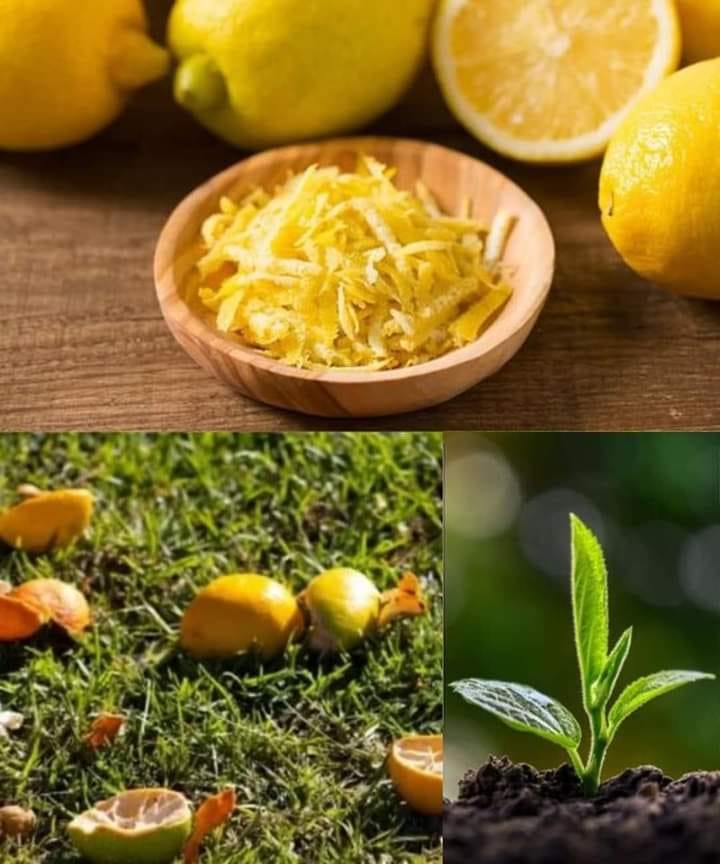Untold Treasures for Your Garden
1. Natural Pest Repellent
Scatter chopped lemon peels around the base of plants.
Place peels in areas where pests are seen to deter ants, aphids, and slugs.
2. Soil Enrichment
Dry lemon peels and grind into a fine powder.
Mix powder into compost or directly into soil for nutrients like nitrogen, phosphorus, and potassium.
3. Compost Booster
Chop or shred lemon peels to speed up compost decomposition.
Mix well with other compost materials to enrich nutrient content.
4. Seed Starters
Cut lemon peels in half and remove pulp, leaving a small shell.
Fill with soil, plant seeds, and transplant entire peel as seedlings grow.
5. Fertilizer Tea
Boil lemon peels in water for 24 hours.
Strain liquid and use as natural fertilizer for plants.
6. pH Balance Adjustment
Bury chopped lemon peels near acid-loving plants to adjust soil pH.
7. Weed Deterrent
Lay dried lemon peels around plants to suppress weed growth as they decompose.
Lemon peels are a valuable resource for your garden, providing nutrients, pest control, and soil health benefits. By incorporating these simple methods into your gardening routine, you can maximize the benefits of lemon peels and promote robust plant growth naturally.
